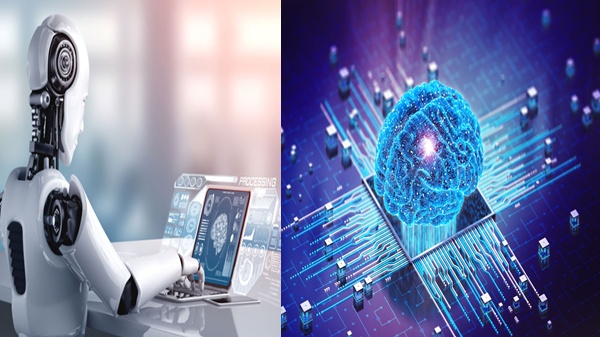Artificial Intelligence (AI)
Artificial intelligence (AI) [400 words]
Artificial Intelligence (AI) is transforming the world at an unprecedented pace. Once the stuff of science fiction, AI is now an integral part of our everyday lives, revolutionizing industries, healthcare, education, and even our social interactions. At its core, AI refers to the ability of machines to perform tasks that typically require human intelligence, such as problem-solving, learning, and decision-making. The continuous advancement of AI technologies promises to further alter the way we live, work, and communicate.
One of the most significant ways AI is reshaping the world is in the realm of automation. Industries such as manufacturing, logistics, and customer service are increasingly relying on AI to streamline processes, reduce costs, and enhance productivity. Robots, powered by AI, are now capable of performing complex tasks with precision, from assembling cars to managing inventories in warehouses. In customer service, AI-driven chatbots can address customer queries instantaneously, providing support 24/7 and improving overall service efficiency.
AI’s role in healthcare is equally transformative. Machine learning algorithms can analyze vast amounts of medical data, helping doctors diagnose diseases more accurately and quickly. AI-powered tools can predict potential health risks, allowing for early intervention and personalized treatment plans. Moreover, AI is also accelerating drug discovery, reducing the time and cost required to develop life-saving medications.
In education, AI is enhancing personalized learning experiences. Intelligent tutoring systems can adapt to the needs of individual students, offering tailored lessons and feedback to optimize learning outcomes. Teachers, too, benefit from AI by using data-driven insights to monitor student progress and identify areas where additional support may be needed.
However, the rise of AI brings with it concerns, particularly around ethics and job displacement. As machines become more capable, there are fears that many jobs, particularly in low-skilled sectors, may become obsolete. This raises questions about the future of work and how society can ensure that the benefits of AI are distributed equitably. Additionally, there are concerns about privacy and data security, as AI systems often rely on large datasets that may contain sensitive information.
Despite these challenges, the potential of AI is immense. When used responsibly, AI has the capacity to address some of the world’s most pressing problems, from climate change to poverty. As we continue to develop and integrate AI into various aspects of life, it is crucial to establish frameworks that prioritize ethical considerations and ensure that AI benefits all of humanity.
In conclusion, Artificial Intelligence is a powerful force that is reshaping the future in profound ways. While there are challenges to navigate, the potential for positive change is vast, and AI is poised to play a central role in building a more efficient, innovative, and interconnected world.
or,
Artificial intelligence (AI) [300 words]
Artificial Intelligence (AI) is a transformative technology that is reshaping industries, societies, and everyday life. At its core, AI involves the creation of machines or systems that can perform tasks typically requiring human intelligence, such as problem-solving, decision-making, and learning. Over the years, AI has evolved through different stages, from basic automation to sophisticated systems capable of deep learning and advanced reasoning.
One of the key factors driving AI’s growth is the development of machine learning algorithms, which enable systems to improve their performance based on experience. These algorithms analyze large datasets, identify patterns, and make predictions or decisions without explicit programming. For example, AI is used in recommendation systems for online shopping or entertainment, allowing companies to personalize user experiences.
AI also plays a crucial role in healthcare, where it helps diagnose diseases, predict patient outcomes, and discover new drugs. By analyzing medical data, AI systems can identify patterns that might be missed by human practitioners, potentially saving lives and improving treatment outcomes. In fields like autonomous driving, AI powers self-driving cars that can navigate streets, recognize obstacles, and make real-time decisions, reducing human error.
However, the rise of AI brings challenges. Ethical concerns about privacy, bias in decision-making, and job displacement are some of the issues that need to be addressed as AI continues to develop. There is a growing need for regulations and guidelines to ensure AI systems are used responsibly and fairly.
In conclusion, AI holds enormous potential for improving the quality of life and revolutionizing industries. While it promises advancements in numerous sectors, it is essential that its development is approached thoughtfully, with consideration for ethical implications and societal impacts. The future of AI is bright, but it must be shaped with care.
or,
Artificial intelligence (AI) [250 words]
Artificial Intelligence (AI) refers to the simulation of human intelligence in machines designed to think, learn, and problem-solve. It has become a transformative force across various sectors, from healthcare and education to business and entertainment. The primary goal of AI is to develop systems capable of performing tasks that typically require human intellect, such as speech recognition, decision-making, and visual perception.
The rapid advancement of AI has revolutionized industries. In healthcare, AI algorithms are used to analyze medical images, assist in diagnosing diseases, and even predict patient outcomes. In business, AI-powered tools streamline operations, improve customer service through chatbots, and enhance decision-making through data analysis. Moreover, AI’s impact is also evident in autonomous vehicles, where machine learning algorithms power self-driving cars to navigate and make real-time decisions.
Despite its promise, AI also raises important ethical and societal concerns. Questions about job displacement due to automation, data privacy, and biases within AI systems are critical issues that need to be addressed. As AI continues to evolve, there is an increasing need for regulations and ethical frameworks to ensure its responsible development and use.
In conclusion, artificial intelligence has the potential to significantly improve various aspects of human life, but it also necessitates careful consideration of its broader implications. Striking a balance between innovation and ethical responsibility will be essential in shaping a future where AI can be both beneficial and safe for society.

